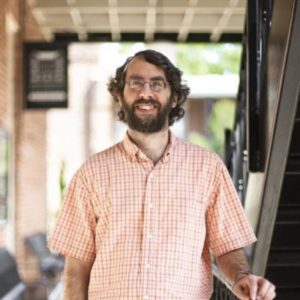
Steven Ramey is Professor and Chair in the Department of Religious Studies at the University of Alabama, where he also is Director of Asian Studies. His research emphasizes contemporary practices and identifications in South Asia, and the ways those are contested and represented. He is author of Hindu, Sufi, or Sikh (Palgrave, 2008) and editor of Writing Religion: The Case for the Critical Study of Religion (University of Alabama Press, 2015), Fabricating Difference (Equinox, 2017), and Hinduism in 5 Minutes (Equinox, 2022). His most recent project is the co-written Religions of the World: Questions, Challenges, and New Directions (Equinox, 2024) with Leslie Dorrough Smith.
Responding to our interview with Paul Hedges, Steven Ramey builds on the discussion by arguing for the necessity of unpacking the authority associated with textbooks and shifting pedagogical approaches from presenting information to training students to think critically about the information presented.
Visit our archives to explore the insider/outsider problem in the study of religion. We explore questions such as "What is an 'insider' or 'outsider'?" and "How do scholars of religion study and engage 'insiders'?" to begin unpacking what all is at stake in this process of group formation.
Over the course of Ramey's career he has gradually and smoothly made a significant shift. Of course he still studies material relevant to his earlier training, but a shift in research focus from inter-religious cooperation to diaspora religion, eventually studying south Asian communities in the U.S.
Identity or Identification? In this second podcast for Identities? Week, the Culture on the Edge group address the issue of religious identity. Is our identity – cultural, religious or other – something which causes us to act, or something which we choose to mobilise in certain circumstances? And what part do scholars have in reifying these discourses?
This work is licensed under a Creative Commons Attribution- NonCommercial- NoDerivs 3.0 Unported License.
The views expressed in podcasts, features and responses are the views of the individual contributors, and do not necessarily reflect the views of The Religious Studies Project or our sponsors. The Religious Studies Project is produced by the Religious Studies Project Association (SCIO), a Scottish Charitable Incorporated Organisation (charity number SC047750).